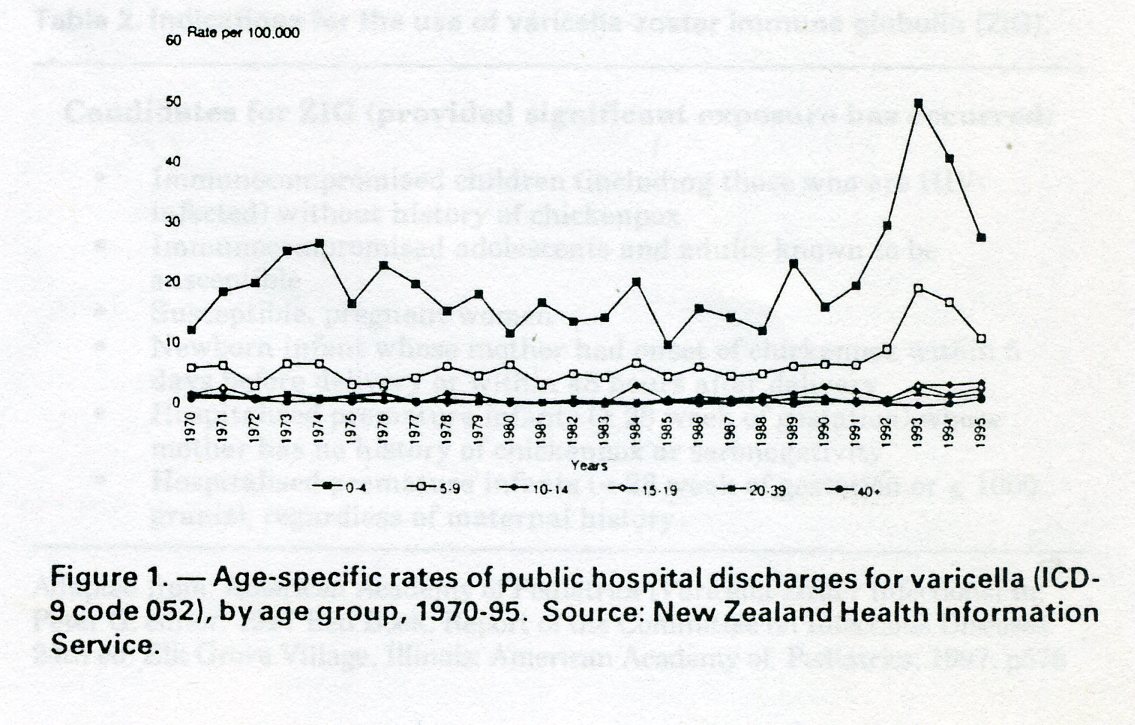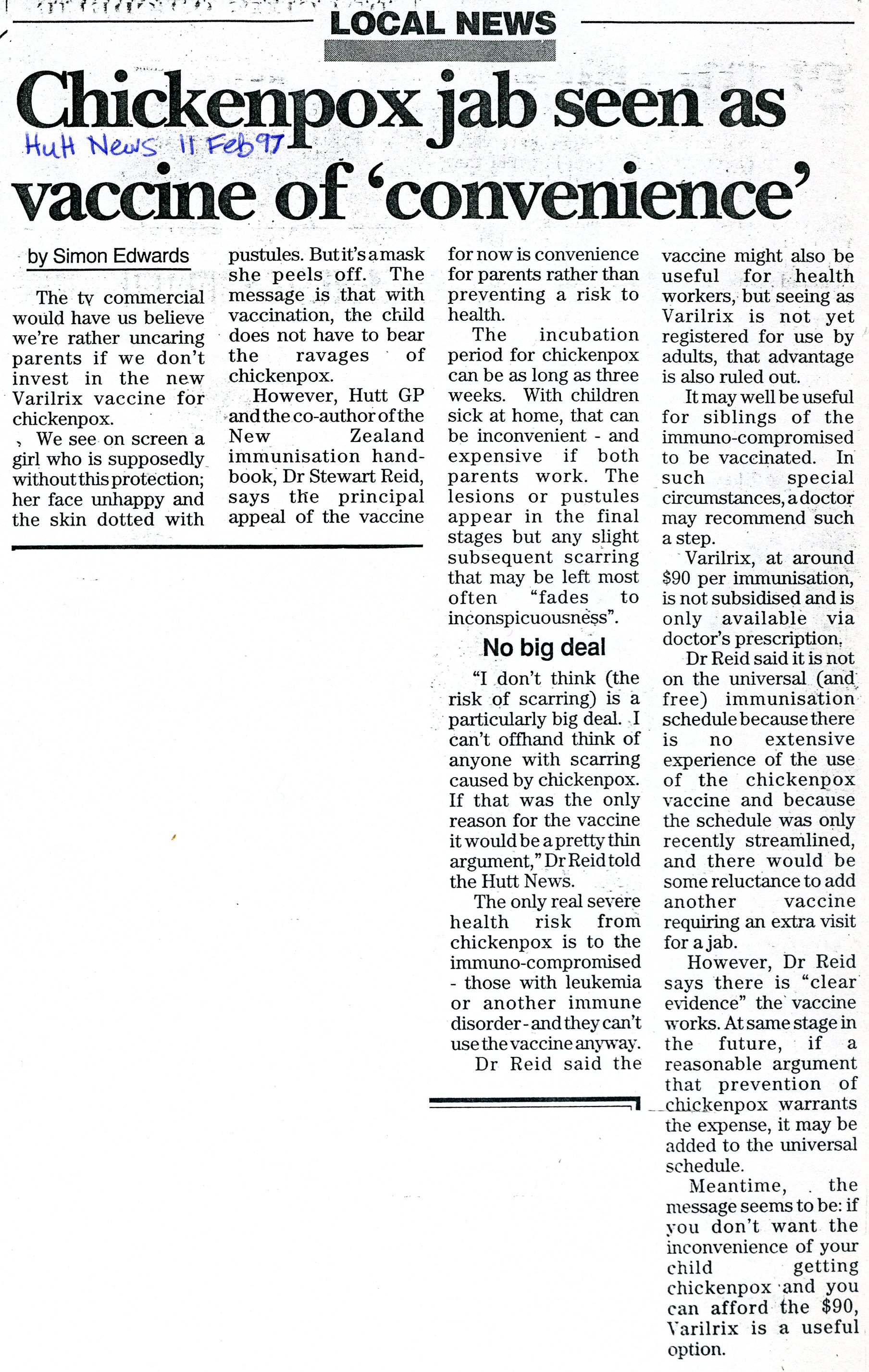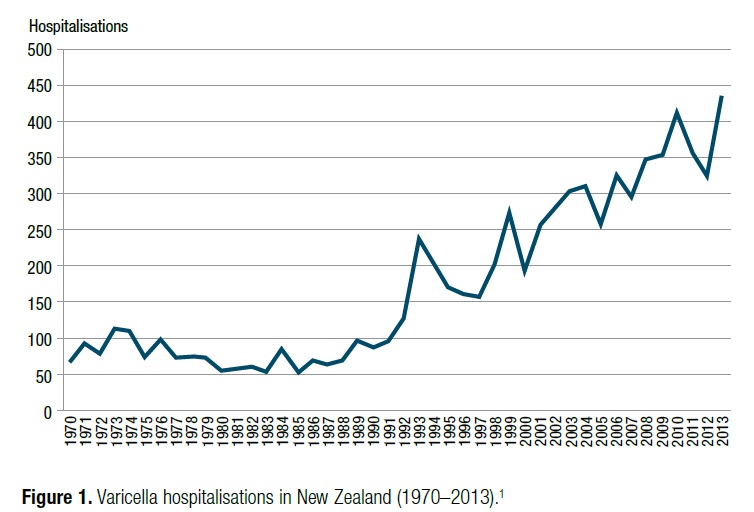A lot of New Zealand children have been coming down with chickenpox, as evidenced by newspaper articles like this one from Otago Daily Times. Put the word, “chickenpox” in Google news, and it’s everywhere, even popping up in . . . vaccinated USA.
Chickenpox, which was once a rite of passage for all children, is still a normal childhood disease for many children.
But things are changing. Chickenpox parties are now considered a medical crime and the height of dangerous irresponsibility. Don’t be surprised if media is saturated with this GSK chickenpox advertisement.

Because . . . Glaxo Smith Kline’s chickenpox vaccine will be added to the New Zealand vaccination schedule in July 2017. On the surface that’s the only major change most parents will notice. Under the surface is a much bigger change. GlaxoSmithKline has achieved a monopoly of all childhood vaccines up to the age of 11.
Having scratched IMAC’s back for a very long time, GSK finally gets their payback. Both Nikki Turner and IMAC have been prolifically funded by GSK, as evidenced from Helen Petousis-Harris’ study funding over the years; Nikki Turner’s WHO SAGE committee conflicts of interest, and funding for the Research Review educational series.

Of course, to provaxxers, GlaxoSmithKline funding the New Zealand provaccine forever and a day, and for a long time into the future, isn’t REALLY considered a conflict of interest. It is only a conflict of interest when parents pay for books written by anyone who points out history and medical literature which calls into question, vaccine propaganda. Ironic hypocrisy really.
Not that GlaxoSmithKline cares. They have got what they wanted. Almost a clean sweep of all childhood vaccines from 2017 will harvest shareholders, millions of taxpayer dollars.
So why has the Chickenpox vaccine been put into the schedule?
GSK has been touting this vaccine in New Zealand since 1995 as shown by this direct approach to doctors in 2004.
Notice how little information they gave doctors on the vaccine.
So for 22 years, some New Zealand parents have bought this vaccine for their children. The vast majority of the vaccinated children I knew still got chickenpox. The common parental response? “BECAUSE my children were vaccinated, they didn’t die”. Such is the power of brainwashing.
According to the recent Research Review Educational Series to New Zealand professionals, rising complications are the main reason for the introduction of this vaccine, because chickenpox has become a serious disease and therefore, parents’ perceptions of diseases should change.
When Ian was born in 1981, the doctor gave me THIS Panadol pamphlet. When David was born, in 1984, the doctor gave me THIS Panadol pamphlet. In both, the special points said: “As harmful complications are rare, no vaccination is necessary.”

In 2017, it’s a serious disease. In order to make parents vaccinate, they have to be scared of a disease, so you have to shift social perception, and that doesn’t happen overnight. A recent 2017 article about the Australian flu vaccine scare in 2010, showed that parents won’t use a vaccine if they don’t have a “high level of dread”.

Parents who aren’t in a state of dread, are able to think – to rationalise – that a disease that isn’t about to kill their child, doesn’t need a vaccine.
Most parents who have successfully home-nursed normal, mild chickenpox don’t consider it a big deal. So, you should expect to be told some really scary chickenpox stories on main stream media, to raise your level of dread.
And in that context, let’s be honest. Chickenpox, when treated the way the medical model recommends, can turn really nasty on you, which is provable from the medical literature.
Let’s look at how that came about.
An article came out in the Consumer magazine in 1995, which talked about a jump in hospital discharges for chickenpox complications in 1993. I rang the Ministry of Health Statistics services on 18th November 1995, and they told me that it might only be an artifact because in 1992, the definition of hospital discharge had changed to include any short stay of “longer than three hours”. Given the long waiting times in A&E even back then, you could now be labelled as “hospital discharged” for nothing at all.
That increase was prominently featured in a 1998 NZMJ article discussing the rationale for introducing the chickenpox vaccination in New Zealand.

But before that article, discussion for the vaccine was mainly centred on convenience for parents:

However, the 2017 ‘expert’ advice released to GPs, centres on the rise in hospitalisations which have increased considerably since then:

So the change in the criteria for Hospital admission isn’t responsible for all of the increase.
In my opinion, what started to increase the severity of chickenpox was the mindless recommendation to use fever-lowering drugs.
Even though there is NO EVIDENCE that bringing down a fever in an infected child, helps that
Keep Reading...
Welcome
 Thanks for dropping in; We would like you to really ...
Thanks for dropping in; We would like you to really ...
EXPLORE this website. Poke around. Press Buttons. Join dots. Read between the lines.
Chickenpox: A new, dreaded disease?
Hilary Butler Friday, June 30, 2017
Hilary's Desk
These are some of Hilary's latest blogs:
- Which elephant is that, Johan Morreau??? 05-Oct-2016
- Anne Mae Braiden 18-Jun-2016
- Polly Gillespie - when truth matters 16-May-2016
- The deadly shadow of Measles and Michael Mina 04-Feb-2016
- The ultimate con drug, Paracetamol. 27-Apr-2015
- Forced Penetration - no comparison? 24-Apr-2015
Website Resources
Over time, we will provide "Public" and "Member only" information on issues including diseases, vaccines and pertinent history. Click on the headings to find out more.





